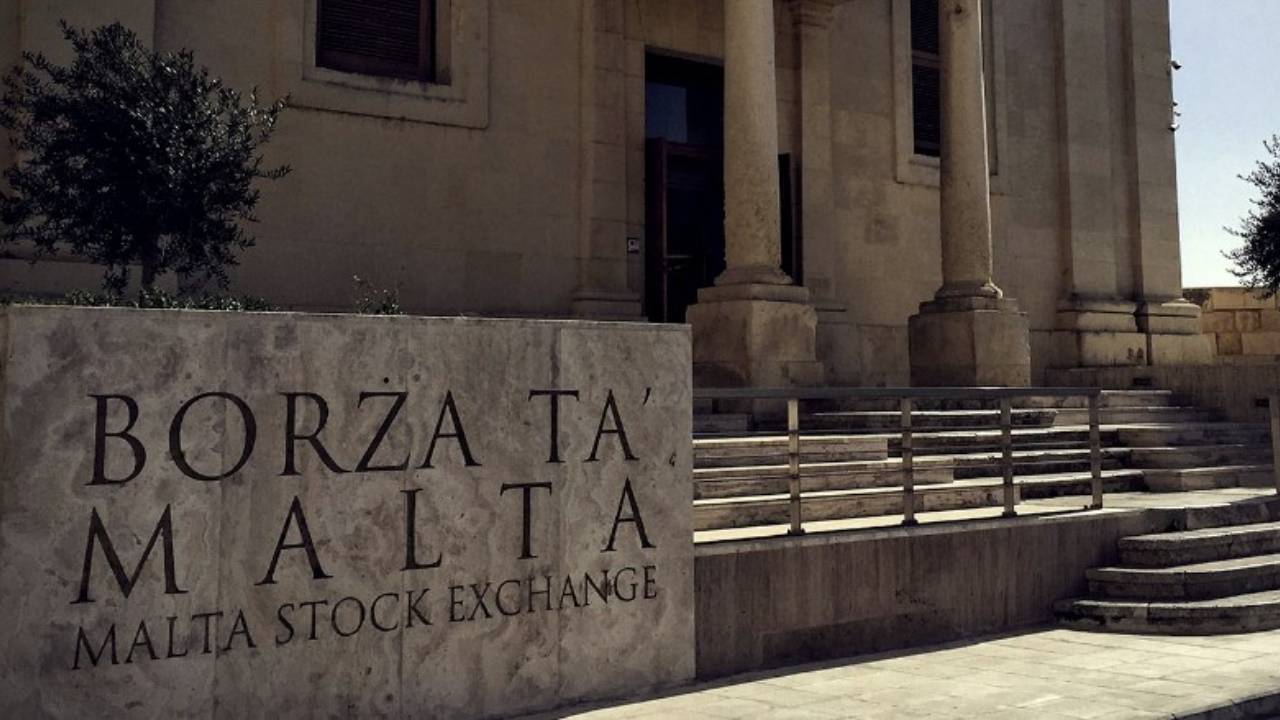Investing in Malta Stock Exchange

Investing in the stock market offers individuals the opportunity to grow their wealth and achieve long-term financial goals. One of the emerging stock exchanges that have gained attention is the Malta Stock Exchange (MSE). With its stable economic environment, attractive tax incentives, and access to international markets, the MSE has become an appealing option for investors looking to diversify their portfolios.
Benefits of Investing in the Malta Stock Exchange
Stable Economic Environment in Malta
Malta has established itself as a stable and prosperous economy, attracting both local and international investors. The country’s sound fiscal policies, robust regulatory framework, and strategic location make it an ideal destination for investments. The government’s commitment to promoting business and innovation further enhances the overall investment climate.
Diversification Opportunities
Investing in the Malta Stock Exchange provides investors with opportunities to diversify their portfolios. The MSE offers a range of investment options across various sectors, including financial services, real estate, tourism, and technology. By spreading investments across different industries, investors can minimize their exposure to risk and potentially maximize returns.
Attractive Tax Incentives
One of the key advantages of investing in the Malta Stock Exchange is the attractive tax incentives provided by the Maltese government. The country offers a favorable tax regime, including tax credits, exemptions, and reduced rates for eligible investors. These incentives can significantly enhance investment returns and contribute to long-term wealth accumulation.
Access to International Markets
The Malta Stock Exchange provides investors with access to international markets through its membership in various global exchanges and partnerships. This connectivity allows investors to tap into a broader range of investment opportunities and gain exposure to international companies and industries. Access to global markets can further diversify portfolios and potentially enhance investment performance.
How to Start Investing in the Malta Stock Exchange
To start investing in the Malta Stock Exchange, follow these steps:
- Open a brokerage account: Choose a reputable brokerage firm that offers access to the MSE. Open an account with them to facilitate trading on the exchange.
- Conduct thorough research: Before making any investment decisions, conduct comprehensive research on the companies listed on the MSE. Analyze their financial performance, industry trends, and growth potential.
- Understand the regulatory framework: Familiarize yourself with the regulatory framework governing the Malta Stock Exchange. Understand the listing requirements, disclosure obligations, and investor protection measures.
- Develop an investment strategy: Define your investment goals and risk tolerance. Develop an investment strategy that aligns with your objectives. Consider factors such as asset allocation, diversification, and investment horizon.
Types of Investments Available on the Malta Stock Exchange
The Malta Stock Exchange offers a range of investment options, including:
Equities
Equities, or stocks, represent ownership in a company. By purchasing shares of companies listed on the Malta Stock Exchange, investors become shareholders and have the potential to benefit from the company’s growth and profitability. Equities can offer both capital appreciation and dividend income.
Bonds
Bonds are debt instruments issued by governments, municipalities, or corporations to raise capital. Investing in bonds allows investors to earn interest income over a fixed period. The Malta Stock Exchange offers a variety of bonds, including government bonds, corporate bonds, and municipal bonds.
Exchange-Traded Funds (ETFs)
Exchange-Traded Funds (ETFs) are investment funds that trade on stock exchanges like individual stocks. ETFs provide investors with exposure to a diversified portfolio of assets, such as stocks, bonds, or commodities. Investing in ETFs can offer diversification and liquidity benefits.
Investment Funds
Investment funds pool money from multiple investors to invest in a diversified portfolio of securities. The Malta Stock Exchange hosts a range of investment funds, including mutual funds, index funds, and hedge funds. Investment funds allow investors to access professional management and benefit from economies of scale.
Investment Strategies for the Malta Stock Exchange
When investing in the Malta Stock Exchange, consider the following strategies:
Long-term Investing
Long-term investing involves holding investments for an extended period, typically years or decades. This strategy aims to capture the potential growth of companies over the long term. Investors who adopt a long-term approach often benefit from compounding returns and reduced transaction costs.
Value Investing
Value investing focuses on identifying undervalued companies with solid fundamentals. Investors employing this strategy aim to buy stocks trading below their intrinsic value, expecting the market to eventually recognize their worth. Value investors typically look for companies with low price-to-earnings ratios, strong balance sheets, and competitive advantages.
Growth Investing
Growth investing involves selecting companies with high growth potential. Investors seeking capital appreciation prioritize companies that demonstrate strong revenue growth, expanding market share, and innovative business models. Growth investors often invest in sectors such as technology, healthcare, and consumer discretionary.
Dividend Investing
Dividend investing involves targeting companies that regularly distribute dividends to shareholders. Dividend-paying companies provide investors with a steady income stream, making this strategy popular among income-oriented investors. Dividend investing can be particularly attractive for those seeking a reliable source of passive income.
Risks and Challenges of Investing in the Malta Stock Exchange
While investing in the Malta Stock Exchange presents opportunities, it’s important to be aware of potential risks and challenges:
Market Volatility
Like any stock market, the Malta Stock Exchange is susceptible to market volatility. Prices of stocks and other securities can fluctuate significantly, influenced by various factors such as economic conditions, geopolitical events, and investor sentiment. Volatility can impact the value of investments and potentially lead to losses.
Regulatory Changes
Changes in regulatory policies or legal frameworks can impact investments on the Malta Stock Exchange. Investors should stay informed about any amendments to rules, tax regulations, or listing requirements that may affect their investment strategies or returns.
Currency Risks
Investors trading on the Malta Stock Exchange should consider currency risks, especially if their base currency is different from the Maltese Euro (EUR). Fluctuations in exchange rates can impact investment returns when converting currencies for transactions or repatriating funds.
Company-Specific Risks
Investing in individual companies listed on the Malta Stock Exchange carries specific risks associated with those companies. Factors such as poor financial performance, management changes, industry disruptions, or legal issues can affect the value of investments in specific companies.
Tips for Successful Investing in the Malta Stock Exchange
To enhance your chances of success when investing in the Malta Stock Exchange, consider the following tips:
- Diversify your portfolio: Spread your investments across different sectors, asset classes, and geographies to reduce risk and increase the potential for returns.
- Stay updated with market trends: Stay informed about market news, economic indicators, and industry developments. This information can help you make informed investment decisions.
- Regularly review and rebalance your investments: Periodically review your portfolio’s performance and adjust your investments accordingly. Rebalancing ensures that your asset allocation aligns with your investment goals.
- Seek professional advice if needed: If you’re uncertain about investing in the Malta Stock Exchange or need assistance with your investment strategy, consider consulting with a qualified financial advisor who can provide personalized guidance.
Conclusion
Investing in the Malta Stock Exchange can offer individuals opportunities for wealth accumulation and diversification. With its stable economic environment, attractive tax incentives, and access to international markets, the MSE provides a favorable platform for investors. By understanding the available investment options, conducting thorough research, and employing suitable investment strategies, investors can navigate the MSE with confidence and potentially achieve their financial goals.
FAQs
Is the Malta Stock Exchange regulated?
Yes, the Malta Stock Exchange is regulated by the Malta Financial Services Authority (MFSA). The MFSA ensures that the exchange operates in a fair and transparent manner, safeguarding the interests of investors.
What are the listing requirements for companies on the Malta Stock Exchange?
Companies seeking to list on the Malta Stock Exchange must fulfill specific criteria, including financial stability, corporate governance standards, and compliance with disclosure requirements. Detailed listing requirements can be obtained from the MSE or through authorized advisors.
Can I invest in the Malta Stock Exchange through a retirement account?
It depends on the regulations of your country and the specific retirement account you have. Some retirement accounts may allow investments in international stock exchanges, including the Malta Stock Exchange. Consult with your retirement account provider or a financial advisor for guidance.
Are there any restrictions on foreign ownership of Maltese companies listed on the MSE?
The Maltese government does not impose specific restrictions on foreign ownership of companies listed on the Malta Stock Exchange. Foreign investors can freely invest in these companies, subject to compliance with applicable regulations.
How can I stay updated with the latest news and developments related to the Malta Stock Exchange?
Stay informed by regularly checking financial news websites, subscribing to newsletters from reputable financial sources, following official social media accounts of the Malta Stock Exchange and financial regulators, and considering joining relevant online investment communities.
Are there any educational resources available for beginners interested in investing in the Malta Stock Exchange?
Yes, several online resources provide educational materials and guides for beginners in stock investing. You can find articles, tutorials, videos, and webinars that cover topics such as basic investment principles, stock analysis, and portfolio management.
What is the average return on investments in the Malta Stock Exchange?
The average return on investments in the Malta Stock Exchange can vary widely and is influenced by various factors such as market conditions, investment strategies, and individual company performance. Historical data and market analysis can provide insights into past performance, but it’s important to note that past performance is not indicative of future results.
Can I invest in the Malta Stock Exchange if I am not a resident of Malta?
Yes, the Malta Stock Exchange is open to both residents and non-residents. Investors from around the world can participate in the MSE, subject to compliance with applicable regulations and procedures.
What happens if a company is delisted from the Malta Stock Exchange?
When a company is delisted from the Malta Stock Exchange, it means that its shares are no longer traded on the exchange. Delisting can occur due to various reasons, such as mergers, acquisitions, or failure to meet listing requirements. Shareholders are typically provided with information and options regarding their holdings during the delisting process.
Are there any restrictions on short-selling stocks on the Malta Stock Exchange?
Short-selling regulations can vary, and it’s important to check the specific rules and requirements of the Malta Stock Exchange and relevant regulatory authorities. Short-selling involves selling borrowed stocks with the expectation of buying them back at a lower price, profiting from a potential decline in share value.
How can I calculate the potential risks and rewards of investing in the Malta Stock Exchange?
Calculating risks and rewards involves considering various factors such as company financials, market conditions, sector outlook, and investment time horizon. Fundamental analysis, technical analysis, and risk assessment techniques can assist in evaluating potential risks and rewards.
Can I invest in the Malta Stock Exchange through an online trading platform?
Yes, many brokerage firms provide online trading platforms that allow investors to buy and sell securities listed on the Malta Stock Exchange. These platforms offer convenience, real-time market data, and access to various trading tools.
What are the requirements for opening a brokerage account to invest in the Malta Stock Exchange?
Requirements for opening a brokerage account can vary among different firms. Generally, you will need to provide identification documents, proof of address, and complete the account opening forms provided by the brokerage firm. Some firms may have minimum deposit requirements as well.
Are there any tax implications for investing in the Malta Stock Exchange?
Tax implications can depend on various factors, including your jurisdiction, investment type, and the tax treaty between your country and Malta. It is advisable to consult with a tax professional or financial advisor who can provide guidance based on your specific circumstances.
Can I invest in the Malta Stock Exchange if I am a beginner with limited capital?
Yes, investing in the Malta Stock Exchange is possible with varying capital amounts. Some brokerage firms offer low minimum investment requirements, allowing beginners to start investing with smaller amounts. It’s important to assess your risk tolerance, choose suitable investments, and consider any associated fees or commissions.
What are the advantages of investing in the Malta Stock Exchange compared to other global stock exchanges?
The advantages of investing in the Malta Stock Exchange include its stable economic environment, attractive tax incentives, and access to diverse investment opportunities. The MSE’s relatively smaller size may also provide potential opportunities for investors seeking emerging companies and sectors.
Are there any social or environmental responsibility considerations when investing in companies on the Malta Stock Exchange?
Many companies listed on the Malta Stock Exchange have a focus on corporate social responsibility and environmental sustainability. Investors interested in socially responsible investing can research the sustainability practices, initiatives, and reporting of companies before making investment decisions.
Can I invest in the Malta Stock Exchange through a mobile app?
Some brokerage firms offer mobile apps that allow investors to trade on the Malta Stock Exchange using their smartphones or tablets. These apps provide convenience, real-time market information, and the ability to manage investments on the go.
What types of order execution options are available on the Malta Stock Exchange?
The Malta Stock Exchange typically offers various order execution options, including market orders, limit orders, stop orders, and more. These order types provide flexibility in executing trades based on specific price or timing conditions.
Is it possible to invest in index funds or exchange-traded funds (ETFs) on the Malta Stock Exchange?
Yes, the Malta Stock Exchange hosts index funds and ETFs that allow investors to gain exposure to specific market indices or asset classes. These investment products provide diversification benefits and can be traded like individual stocks on the exchange.
Can I invest in the Malta Stock Exchange if I am a first-time investor with limited knowledge?
Yes, even first-time investors can participate in the Malta Stock Exchange. It’s advisable to start with thorough research, educate yourself about investment principles, and consider consulting with a financial advisor or utilizing educational resources to make informed investment decisions.
What are the costs associated with trading on the Malta Stock Exchange?
Costs associated with trading on the Malta Stock Exchange may include brokerage commissions, exchange fees, regulatory fees, and taxes. These costs can vary among brokerage firms, so it’s important to understand the fee structure before initiating trades.
What factors should I consider when choosing a brokerage firm to invest in the Malta Stock Exchange?
When choosing a brokerage firm, consider factors such as reputation, customer service, trading platform features, fees and commissions, research and analysis resources, and the availability of investment options on the Malta Stock Exchange.
Can I invest in the Malta Stock Exchange if I am an institutional investor?
Yes, institutional investors, such as pension funds, insurance companies, and mutual funds, can invest in the Malta Stock Exchange. Institutional investors often have access to specialized investment products and strategies designed to meet their specific objectives.
What are the options for withdrawing funds from investments made on the Malta Stock Exchange?
Withdrawal options can vary among brokerage firms. Typically, you can request withdrawals through electronic funds transfers, checks, or other accepted methods. The funds will be transferred to your designated bank account or as per the instructions provided by your brokerage firm.
Is it possible to invest in initial public offerings (IPOs) on the Malta Stock Exchange?
Yes, the Malta Stock Exchange facilitates the listing and trading of companies through IPOs. Investors can participate in IPOs by following the specific procedures and requirements outlined by the company going public and the brokerage firms involved in the offering.
What are the advantages of investing in individual stocks on the Malta Stock Exchange compared to other investment options?
Investing in individual stocks on the Malta Stock Exchange provides the opportunity to directly own shares of specific companies. This approach allows investors to target specific investment opportunities, exercise voting rights, and potentially benefit from individual company performance.
Are there any investment restrictions based on age or nationality for investing in the Malta Stock Exchange?
Age or nationality restrictions for investing in the Malta Stock Exchange are generally determined by the regulations of your country of residence and any applicable laws in Malta. It is advisable to consult with a financial advisor or regulatory authority to understand any specific restrictions that may apply to you.
Can I trade options or futures contracts on the Malta Stock Exchange?
The Malta Stock Exchange does not currently offer options or futures contracts for trading. However, investors interested in derivative products can explore other global exchanges that provide such instruments.
What support or assistance is available if I face any issues or difficulties while investing in the Malta Stock Exchange?
If you encounter issues or difficulties while investing in the Malta Stock Exchange, you can seek support and assistance from your brokerage firm’s customer service team. They can provide guidance, address concerns, and help resolve any technical or operational difficulties you may face.
Recommended Posts

Peter & Sons Alliance with iGaming Deck
May 20, 2024

Accounting Advice for Malta’s Startups
May 20, 2024

Overview of Business Finance in Malta
May 17, 2024




